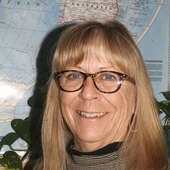What exactly is a genealogist?
Friday, December 1, 2017
A genealogist appears to be a person interested in their family tree who researches only information that pertains to themselves or their ancestors. In Southwest Nebraska, they are much, much more. The library maintained by Southwest Nebraska Nebraska Genealogical Society is a written memory bank for area records, plus a research facility for DAR, Mayflower Descendants and many of the 50 United States census, family history, and state history books.
Yes, we do research our own family line, but most of us have only a few mysteries left to uncover in our tree. What we love to do, is to help people begin their own search for documentation of their family.
We are also historians. Most of us have at least browsed through the records we have, some have read them from cover to cover. This allows us to help when people are trying to match up oral memories with written confirmation. We have contributed to the reunion of lost photos and family mementos (such as the Enright collection) with living relatives. We have the original marriage certificates for early Red Willow County, plat maps, obituaries and funeral cards, cemetery maps and more. By using our informational resources and online resources, we can solve most questions concerning this area.
I was asked once if I spent all of my time reading old newspapers. Those of you who know me well could answer that question since the reality is, I don’t have that much free time. When I do, though, you would probably find me perusing newspapers online. What I recently found was my mother’s hometown newspaper online, the Dalton Delegate. This site is limited to Nebraska papers and some of these are not available on Chronicling America. If you wish to search for a hometown paper previously unavailable place the name of the town you are interested in as I have done in this example: dalton.avantage-preservation.com and hit search. The only years available for Dalton right now start at 1939 but every paper differs.
Here’s another hint for researchers: Military records for deceased veterans can be obtained by writing to The National Archives and Records Administration, Military Records Facility, 9700 Page Ave., St. Louis, MO 63132-5100 and requesting form SF-80. Some of these types of records have been destroyed by fire or age over the years but most are available.
Now for a little McCook history from the McCook Tribune: “The city has provided a new city dumping ground in the canyon north of the north end of 3rd Street East. A lane has been fenced from end of the street to the dumping ground, which is also enclosed. All persons interested will please notice. Now is the time to give your premises, alleys, etc., a thorough cleaning after the accumulation of the winter. Kindly give this your attention, citizens. Fred Schlagel, Chief of Police.” April 1, 1912 (I found this interesting because it has always been my memory that Weiland Field football stadium was supposedly built on top of what had been the city dump. I suspect this confirms that rumor.)
This article from the June 1, 1906 McCook Tribune caught my eye concerning those who are searching for very early orphanage records: “Good homes are wanted for destitute and orphan children of all ages, by the Child Saving Institute, 1806 Ohio Street, Omaha. From 40 to 60 constantly on hand. Over 300 passing through the institute during the year. If interested write for application blanks, inclosing stamp for postage.” (I did some further research on the Child Saving Institute and will share it in the future.)
This Saturday, Dec. 2, is SWNGS Christmas Party that is open to the public. Come join us and tour our library starting at 1 p.m. at 110 West C, Suite M-3. An elevator is available for those who need it as we are located on the mezzanine.

